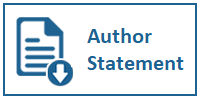FLOW EXPERIENCE DAN ENTREPRENEURIAL SATISFACTION DALAM BISNIS BERKELANJUTAN DI INDONESIA ERA COVID19
DOI:
https://doi.org/10.31937/manajemen.v13i2.2151Abstract
Abstract- Economic difficulties along with the ongoing situation of the COVID-19 pandemic requires start-ups to be innovative in order to stay in the market. As a developing country, the Indonesian government fully supports business development in the country by constantly increasing the number of entrepreneurs and local businesses to act as one of the strong foundations in Indonesia's economy. However, many of these entrepreneurship endeavors does not last and are not sustainable. Therefore, this research aims to evaluate the influence of entrepreneurship, market orientation, and network on business sustainability, flow experience and entrepreneurial satisfaction of Indonesian entrepreneurs. Furthermore, this study was conducted using a quantitative method with a non-probability sampling technique, in which the respondent subjects are 225 entrepreneurs who are currently doing business in Indonesia. Data is then analyzed using structural equation modeling (SEM) with the software SPSS and AMOS. Results from this research indicate that there was a significant influence of entrepreneurship, market orientation, and network toward business sustainability, flow experience and entrepreneurial satisfaction in Indonesian entrepreneurs. In this study, it can be concluded that in establishing business sustainability, an entrepreneur must take several ways to form competence in running his business in the long term found in the flow experience. However, some limitation to the research is that there were limitations to time and interactions that could be performed during the Covid-19 restriction.
Keywords: Business Sustainability; Entrepreneurial Satisfaction; Entrepreneurship; Flow Experience; Market Orientation
Downloads
Downloads
Published
How to Cite
Issue
Section
License
Authors retain copyright and grant the journal right of first publication with the work simultaneously licensed under a Creative Commons Attribution-ShareAlike International License (CC-BY-SA 4.0) that allows others to share the work with an acknowledgement of the work's authorship and initial publication in this journal.
Authors are able to enter into separate, additional contractual arrangements for the non-exclusive distribution of the journal's published version of the work (e.g., post it to an institutional repository or publish it in a book), with an acknowledgement of its initial publication in this journal.















